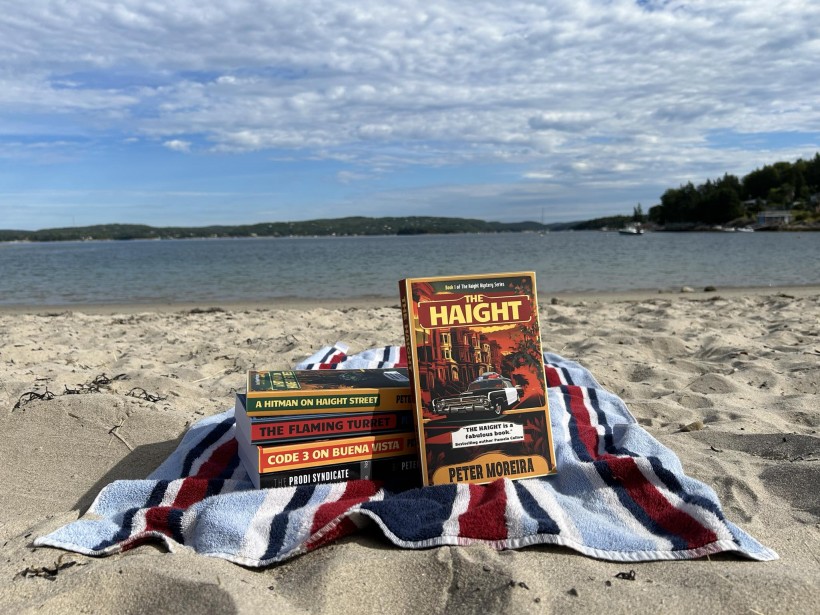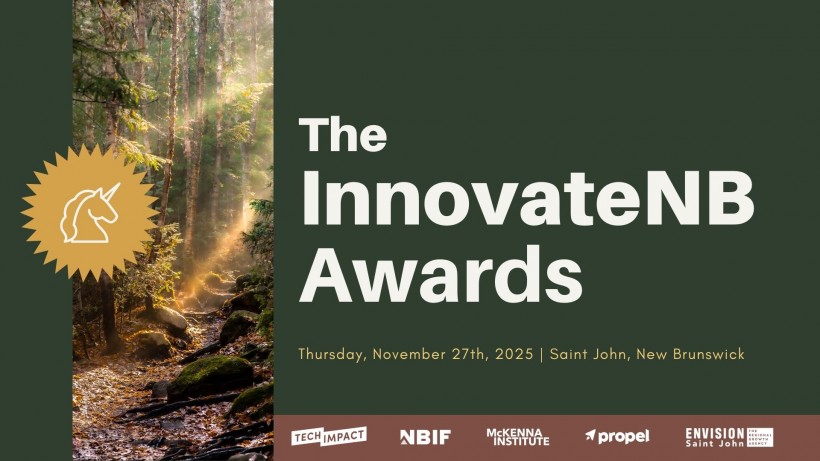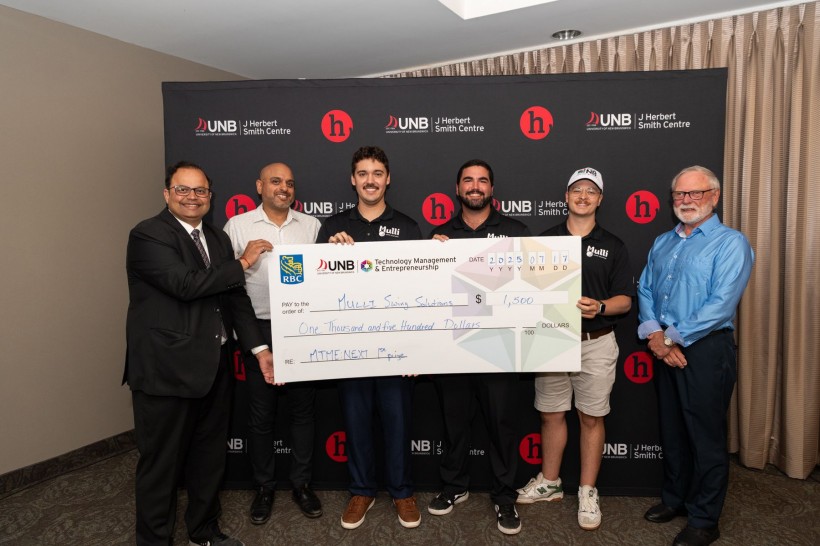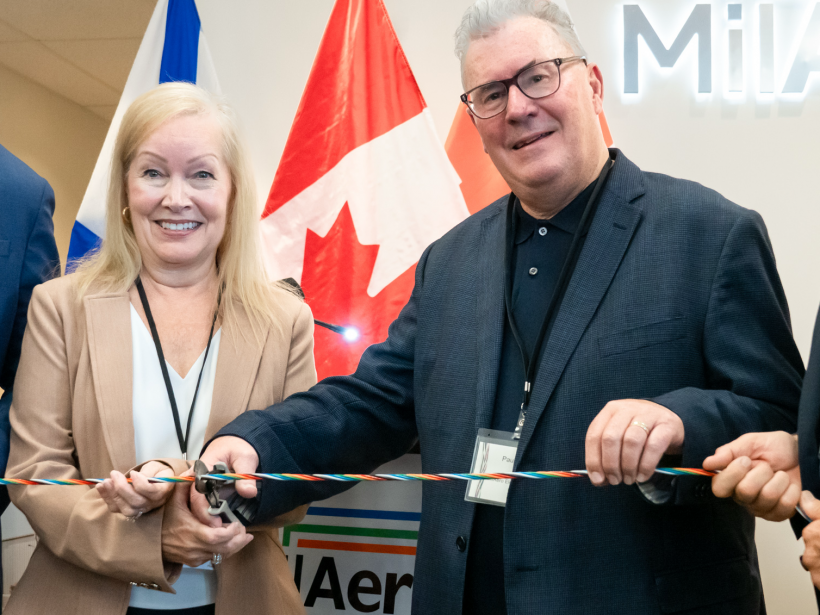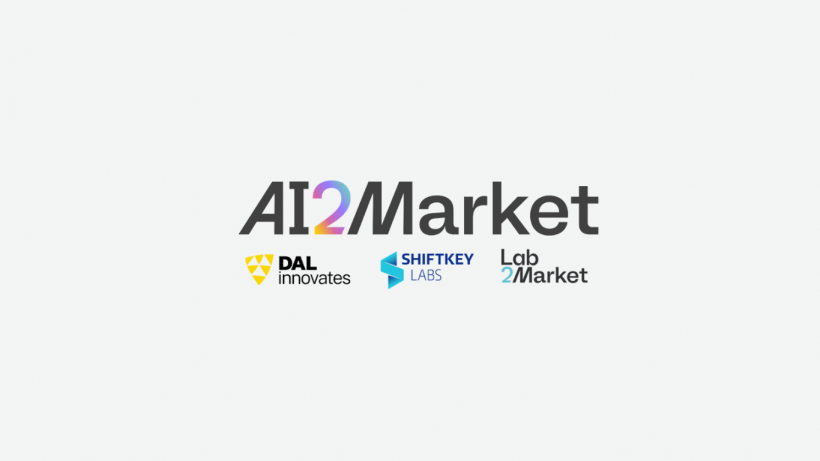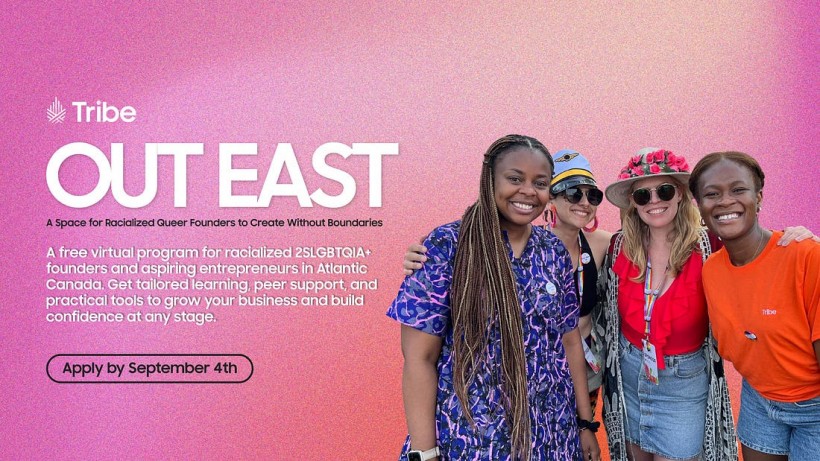Last week’s MTME pitching event at University of New Brunswick was won by golf swing solutions company MULLI. DeepREM, a company developing a sleep solution, placed second. The new ventures won $1,500 and $1,000 respectively.
The winners were among four student teams from the UNB’s Master of Technology Management and Entrepreneurship program. The MTME program, managed under UNBs J. Herbert Smith Centre, offers students training in how to commercialize technological innovation. The fledgling entrepreneurs competed in MTME: NEXT, their degree’s concluding demo day.
MULLI Swing Solutions is a golf tech startup aiming to make the sport more accessible to beginners and enhancing performance for seasoned players. Founded by a team of engineers passionate about golf, the company aims to integrate advanced technology into sports training. Its flagship product is a golf grip training aid that combines custom force sensors, Bluetooth connectivity, wireless charging, and motion tracking to provide real-time feedback. Now in the advanced prototyping stage, the team is refining the product to bring it to market while exploring applications for other sports like hockey and tennis.
Second-placed DeepREM, is developing a mobile app to measure users' biometric data during their sleep, either from a connected wearable device or by recording their breathing sounds from their phone. The app will then analyze the live sleeping patterns and play a sleep-enhancing soundtrack through the user’s headphones or speaker that is specifically designed to target the current sleeping pattern. The soundtrack will use research-backed sleep-enhancing frequencies contrasting with other sleep solutions that often play static, non-adaptive soundtracks, which don’t enhance every stage of sleep and may interfere with sleep, the company said..
The market for sleep tech products is large and growing, founder and CEO Alex Tree said. In 2025, the global sleep tech market is estimated to be worth US$29.3 billion and is predicted to grow to US$134.6 billion by 2034/5, he said. Initially, the company will focus on acquiring customers from two key stressed demographic groups: Millennials (28 to 43 years old) and Gen Xers (44 to 59 years old).
Also presenting: Kura, which is creating an escrow-powered platform to secure peer-to-peer transactions through trust scores, identity verification, and a structured dispute mechanism, ensuring both parties have the confidence to engage safely even without prior relationships. By holding funds securely, evaluating user behavior, and enforcing accountability, Kura aims to become the standard infrastructure for trusted digital interactions across marketplaces, freelance platforms, and direct peer transactions, the company said.
The fourth presenting venture, Peptok, intends to match retired executives with small and medium-sized enterprises (SMEs). The founders said SMEs are facing a growing challenge: high employee turnover and declining training budgets, with 40 percent of new SME employees leaving due to inadequate training, and training budgets dropping by 18.5% in recent years.
This results in significant operational and financial losses, the founders said. And over 43 percent of Canadians aged 60 to 79 are at risk of social isolation.
Peptok intends to close the gap between these problems by connecting SMEs with retired professionals for expert coaching. The platform will allow professionals to provide structured, on-demand support to growing businesses, helping them guide and upskill employees efficiently, while offering coaches meaningful ways to stay engaged, valued, and socially connected, the company said.



